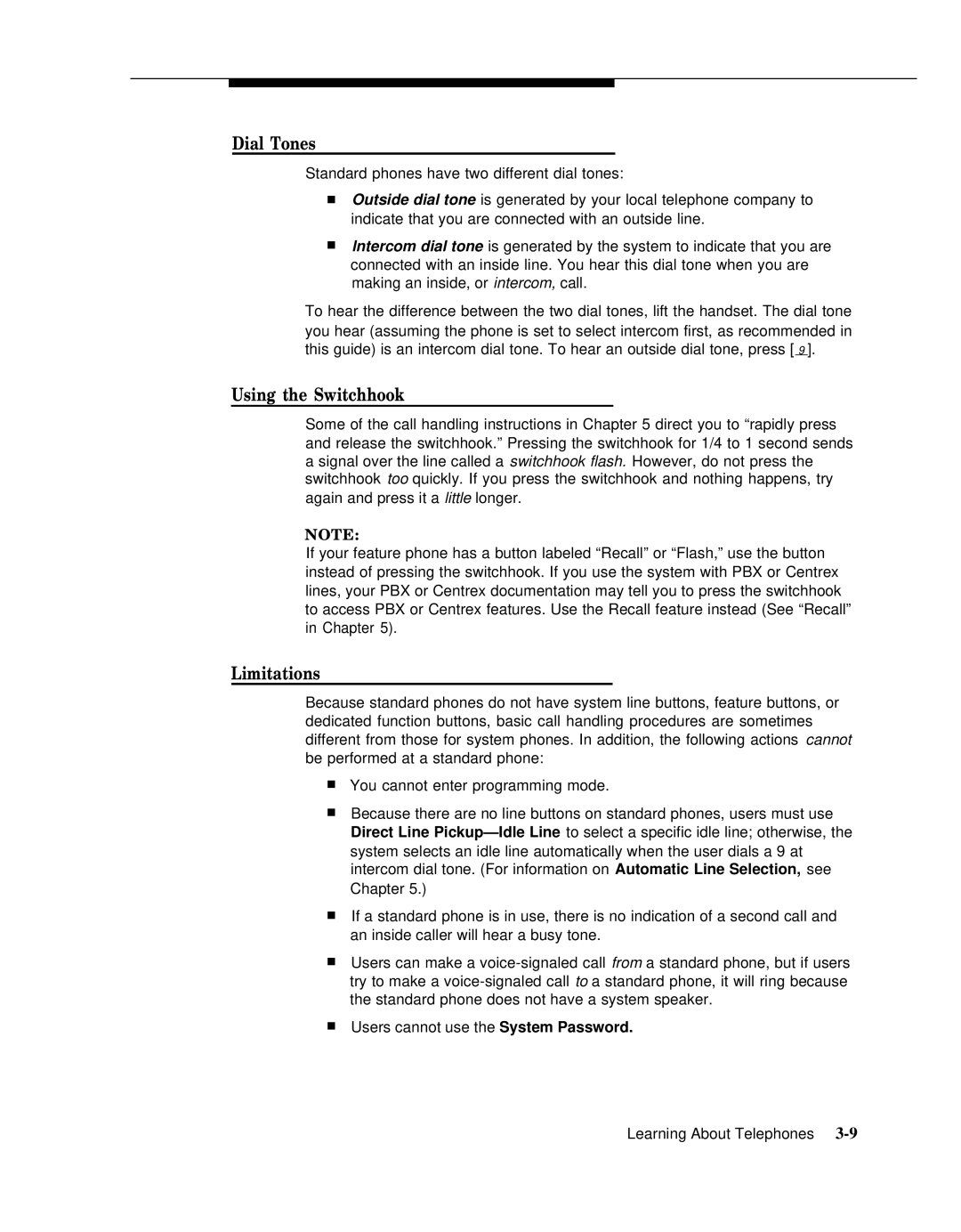
Dial Tones
Standard phones have two different dial tones:
■Outside dial tone is generated by your local telephone company to indicate that you are connected with an outside line.
■lntercom dial tone is generated by the system to indicate that you are connected with an inside line. You hear this dial tone when you are making an inside, or intercom, call.
To hear the difference between the two dial tones, lift the handset. The dial tone you hear (assuming the phone is set to select intercom first, as recommended in this guide) is an intercom dial tone. To hear an outside dial tone, press [ 9 ].
Using the Switchhook
Some of the call handling instructions in Chapter 5 direct you to “rapidly press and release the switchhook.” Pressing the switchhook for 1/4 to 1 second sends a signal over the line called a switchhook flash. However, do not press the switchhook too quickly. If you press the switchhook and nothing happens, try again and press it a little longer.
NOTE:
If your feature phone has a button labeled “Recall” or “Flash,” use the button instead of pressing the switchhook. If you use the system with PBX or Centrex lines, your PBX or Centrex documentation may tell you to press the switchhook to access PBX or Centrex features. Use the Recall feature instead (See “Recall” in Chapter 5).
Limitations
Because standard phones do not have system line buttons, feature buttons, or dedicated function buttons, basic call handling procedures are sometimes different from those for system phones. In addition, the following actions cannot be performed at a standard phone:
■You cannot enter programming mode.
■Because there are no line buttons on standard phones, users must use Direct Line
■If a standard phone is in use, there is no indication of a second call and an inside caller will hear a busy tone.
■Users can make a
■Users cannot use the System Password.
Learning About Telephones
